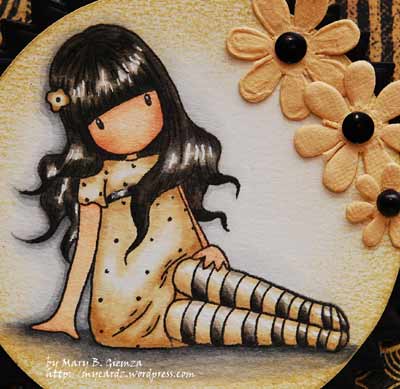
By Michael T. Smith
砚青 选 安旻 译
|
I sat on my deck, enjoying the evening. Birds chirped and fluttered around the birdfeeder in the backyard. Finches clung to a bag of thistle hanging on a tree branch, only ten feet from me. They’d grown used to my presence and no longer flew away, when I stepped out for fresh air. I sat and watched them pull the thistle through the tiny openings in the fabric. Their feathers, red, purple and yellow, pleased my eye. From a distant tree, I heard the song of a cardinal: purdy, purdy, purdy. The song changed. It was a starling. Next, it was a version of the robin’s evening song. A little later it was a song I couldn’t identify. It was a mocking bird. For more than thirty minutes, he sang through his repertoire of songs. He was loud; his singing perfect. He didn’t have a song of his own. He mocked the songs of other birds, pieced them together, and created a concert for my enjoyment. I was reminded of “American Idol,” a show my stepdaughter, Heather, has me addicted to. Hopeful singers competed against each other, singing the songs of others, judged by a panel of three, now four. The top contestants went to Hollywood, where they competed against others. Each week they were faced with new challenges. One-by-one they were eliminated until a winner was chosen. A carpenter built a house. He used skills, learned as a young man, to construct a basic house. Over time, the carpenter learned more. He added his personal touch to his work. He took the basics he learned from those before him and made it a creation of his own. The mocking bird, the winner of “American Idol,” and the carpenter have a common link. They took the ideas of others, copied and learned from them. They added to what they learned and created their own works of art. We don’t have to be original. We start with the building blocks placed in our path by those before us. We have a choice: we can continue to copy, or we can add our own blocks for the next to follow and learn from. I have to run. I think I hear my mocking bird outside. I want to hear what he has created for my enjoyment today. |
我坐在露台上,欣赏傍晚的夜色。后院鸟儿啁啾,在喂鸟器旁边盘旋。雀儿停在树枝上的一堆蓟上面,离我只有十英尺远。它们已经习惯了我的存在,在我出去呼吸新鲜空气时,它们不再飞走了。我坐着,从窗帘的缝隙里看它们拉扯着蓟。它们的羽毛是红色、紫色和黄色的,十分悦目。 远处一棵树上传来红雀的歌声:勃第,勃第,勃第。后来歌声变了,那是一只椋鸟。接下来,是知更鸟的傍晚之歌。再后来的曲子我就听不出了。 那是一只八哥。他唱了足有半个多小时,声音洪亮,曲调完美。他没有自己的曲子,只会模仿其他鸟儿,把它们的曲子拼凑成一场音乐会,供我欣赏。 这让我想起《美国偶像》,因为继女海瑟的缘故,我迷上了这个节目。选手们通过演唱别人的歌曲来互相竞争,由三人评审团进行评判,现在已经变成四个人。最优秀的选手们到好莱坞进行最后的淘汰赛。每周他们都会面临新的挑战。选手们一个接一个遭到淘汰,直到冠军脱颖而出。 我又想到了木匠修建房屋。他用年轻时学到的技能建一座简单的房子。随着时间累积,木匠学到了更多的东西,在工作中加入了个人的风格。就这样,他运用从前人那里学到的基本技能,把房子变成了自己的作品。 八哥、《美国偶像》的冠军和木匠之间有一个共同点。他们都学习和借鉴他人的成果,在此基础上加以创新,最后创作出属于自己的艺术品。 我们不必追求独创。我们从前人放在我们面前的建筑材料的基础上开始。我们可以选择:或者继续模仿,或者把自己的木料加上去,供后人效仿学习。 我要赶快出去了,我又听到那只八哥在外面高歌了。我想听听他今天创作了什么曲子让我欣赏。 (来源:英语学习杂志) |
|
Vocabulary: deck: (房屋的)露天平台。 flutter: 拍翅而飞,盘旋。 finch: 雀科鸣鸟(如燕雀、金翅雀等)。 thistle: 蓟。 American Idol: 福斯广播公司从2002年起主办的美国大众歌手选秀赛。 |